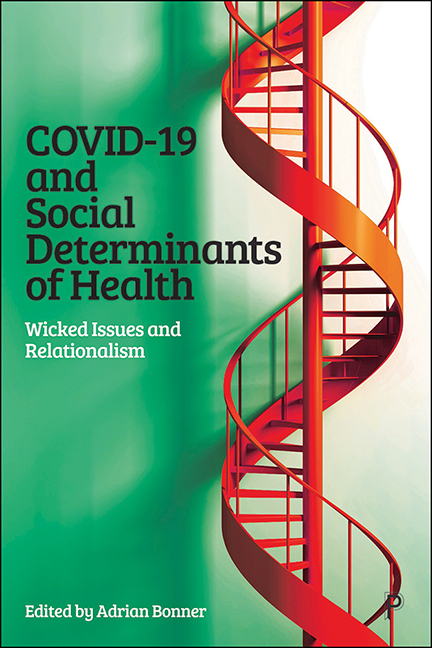Book contents
- Frontmatter
- Miscellaneous Frontmatter
- Contents
- List of figures and tables
- Notes on contributors
- Foreword
- Introduction
- Part I Wicked issues and relationalism
- Part II Regionalism and geopolitical environments
- Part III Public sector, COVID-19 and culture change
- Part IV The third sector
- Part V The case for relationalism
- Part VI Engagement and proposed changes
- Conclusion
- Appendix The Centre for Partnering
- Index
4 - Giving children the best start in life?
Published online by Cambridge University Press: 18 January 2024
- Frontmatter
- Miscellaneous Frontmatter
- Contents
- List of figures and tables
- Notes on contributors
- Foreword
- Introduction
- Part I Wicked issues and relationalism
- Part II Regionalism and geopolitical environments
- Part III Public sector, COVID-19 and culture change
- Part IV The third sector
- Part V The case for relationalism
- Part VI Engagement and proposed changes
- Conclusion
- Appendix The Centre for Partnering
- Index
Summary
Introduction
It is universally accepted that giving children the best start in life should be one of the top priorities for any health and wellbeing system. A number of reports reinforce the need for evidence-based approaches to tackle health inequalities, highlighting that interventions focusing on early years are most effective, cost-effective and lead to improved individual and population health outcomes (Marmot et al, 2010; Marmot, 2020). An increasing number of reports have drawn attention to the importance of ensuring that efforts to recover from the COVID-19 pandemic not only ‘build back better’, but also ‘build back fairer’ (Marmot, 2020). For children and young people (CYP) together with their families this means addressing the significant challenges that existed before the pandemic, mitigating the negative impacts of the pandemic and also ensuring the future of our younger generation is safeguarded.
The size of the challenge before the COVID-19 pandemic
In England, over the last 15 years, social care spending on reactive services for children (including child protection and services for looked after children) has increased exponentially, with nearly two-thirds of councils reporting their 2018/2019 children’s social care budget was insufficient to meet actual levels of demand and spending (LGA, 2019). In order to meet these financial pressures, many local authorities have had no option but to cut non-statutory preventative and early intervention services. This has led to massive reductions in critical infrastructure, services and programmes that support the growth and development of CYP. A few examples have been the closure of Sure Start centres, cuts to public health grants and the resultant reduction in preventative programmes, including health visitors and school nursing and the decommissioning of Family Nurse Partnerships. Even before the COVID-19 pandemic, aligning the best start in life rhetoric with the reality was a significant challenge.
Before the pandemic hit, concerns had already been raised about the health and wellbeing of CYP living in the UK. In 2020, the Royal College of Paediatrics launched their ‘State of Child Health’ in the UK report, raising concerns over increasing numbers of children living in poverty, the stalling of progress in infant mortality and the widening inequality in a range of health indicators (RCPCH, 2020).
- Type
- Chapter
- Information
- COVID-19 and Social Determinants of HealthWicked Issues and Relationalism, pp. 70 - 82Publisher: Bristol University PressPrint publication year: 2023



